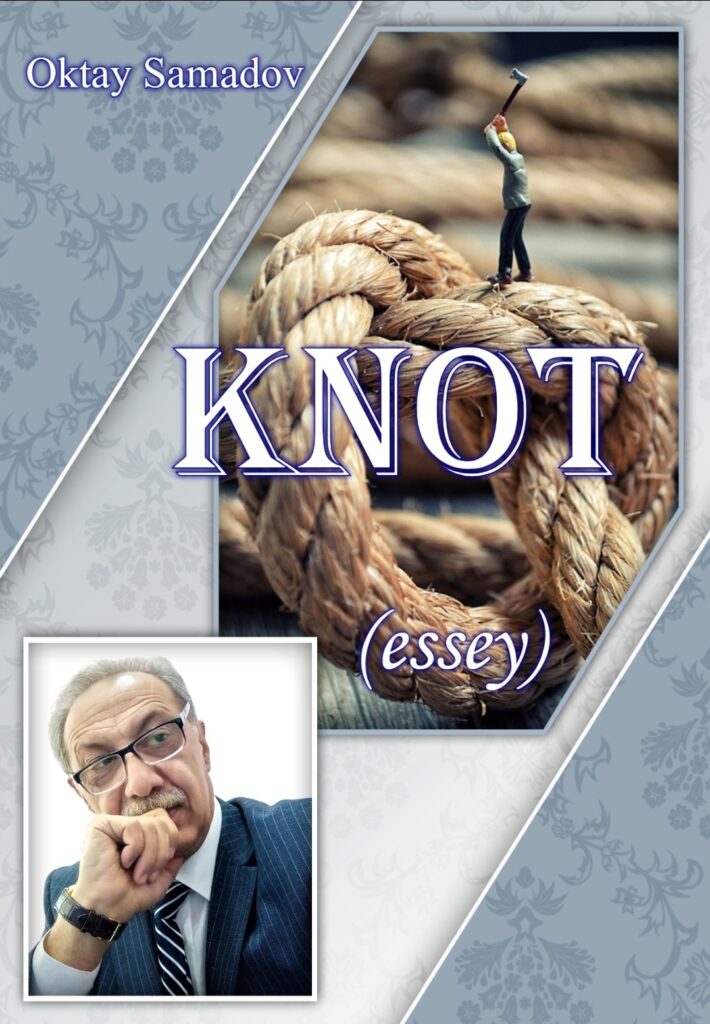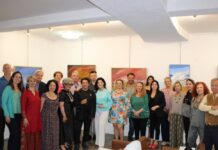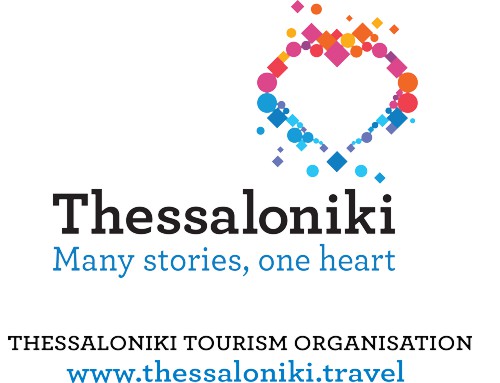Επιμέλεια: Εύα Πετροπούλου Λιανού
KNOT (essay)
Once a wise man was asked:
“Are there any unsolved mysteries or secrets about the Earth and the Heaven?”
He said: “KNOT”…
The wise old man, tying knots in a delicate silk handkerchief, responds with a smile to the young man who asked him” What is the meaning of life?”
The young man shrugged his shoulders and hesitantly said:
– At first it was smooth… Now it’s knotty
-Our life looks like this: when we are born, our life path is smooth, as we live, we have untangling knots made by fate. Those who have a lot of knots face a lot of troubles and suffer. Untying them is not an easy task… When you pull on the towel, the knots become smaller but tighter. At this time, it is impossible to untie the knots…
- What should we do to get rid of them?
- First of all, you need to know who and what caused these knots. Pay attention to each one, think how to untangle them. Try to untangle the knots slowly and carefully. Remember – no knot can be untied with one hand. Appreciate everyone who is dear to you – it is your second hand. Our ancestors said: “The threshing floor fights with the wind, the knot with the people”… Don’t forget the truth: Friendship and love are like a rope: if it is cut, it cannot be fixed without tying a knot. Don’t cut the rope…
Perhaps KNOT is the most contradictory notion that we constantly face in our life, but we don’t get to its essence very often. The KNOT that is tied in our nappy for the first time when we open our eyes to the world, and in our shroud for the last time when we pass away…
… We are travelers on a road called life. This road is not long, nor is it smooth. On the ups and downs path of life, there are those of us who get out of the frying pan and into the fire , those of us who are warmed by the sun, and those who are gone with the wind. On this road where our fate is different, knots constantly accompany us.
If we managed to tie a knot in a shoelace, we were said, “Thank God, you have grown up”… We used to look for nuts and raisins in the small parcels of our grandmothers who tied knots on carpets and rugs… We had a tradition of tying knots around the waist of our newlywed daughters…
As we get older, the number of knots we face on the road of life increases. Our emotions are rooted in our heart, and our thoughts are rooted in our brain, where nerves and veins interconnect and intertwine to create the complex fabric-the knots. Our eyebrows are knotted from nerves, our forehead from thought… When we confront an enemy -we clench our fists, when we go on a journey with a friend – we ourselves are knotted,that is a strong bond is created between us…

KNOT is as old as the world is. The first knots were made by our ancestors before they got fire – the simplest tools and weapons were made by wrapping a stone in a stick and knotting it. It was believed that the knot brings success, heals wounds, and fulfills wishes.
In the dim and distant past, boats were made using knots in ancient Egypt, and in Greece, knot-tying competitions were held. If the Romans used knots in the treatment of the sick, in Babylon the view of the knot was different – the knot was considered a means of making a person sick and weak.
Known as a symbol of the interdependence of all events and living things in the universe, the KNOT was considered a symbol of longevity, love and harmony, stability and change, and the unshakable unity of compassion and wisdom in ancient China.
We use knots today without thinking about their age. It does not occur to us that people used different types of knots thousands of years ago. Today, Egyptian knot-tying techniques have been discovered in very ancient ship models, unearthed during archaeological excavations and called “ships of the dead”.The knotting techniques were also found in the rope hanging from the door of the third room, in the tomb of Pharaoh Tutankhamun.
Has there been a person in the history of mankind who did not use knot even once in his life?! Knots are ubiquitous in human life, being used in a wide variety of fields and situations.
Although it is not clear who took the initiative to use the knot to transmit information, it is widely known that knotted writing, called khipu, was used for a long time. It is even hypothesized that the letters of the alphabet of many nations are copies of painted knots. The ancient Incas made calculations and records and compiled documents using the khipu. Currently, the richest collection of khipu, consisting of 298 knots, is exhibited in the Berlin museum.
The scientific view of knots, which is widely used in seafaring, agriculture, tourism and many other fields, is reflected in nautical science, which has a history of almost a century. This branch of science, which investigates knot theory, classification and application of knots, studies the properties of new synthetic materials that are knotted in modern times.
The aesthetic value of knots has been expressed through the art form of shibari (also known as sibari) in Japan.
***
Our life is a looped carpet. It is woven with knots. The front side is decorated, patterned,and the reverse side is a meaningless mess… There is a story that teaches us a valuable lesson:
The grandson, who is sitting on the opposite side of the hana (loom), asks:
- What are you doing, grandma?
- I weave beauty…
-“Beauty?… It’s a colorful, messy knot…” – thought the grandson. When he came in front of the loom, he couldn’t hide his surprise: what her grandmother had woven was really a beauty made up of colorful and mysterious patterns that complemented each other…
The child grew up. Whenever he encountered incomprehensible and confusing events that made difficulties for him, he turned to God:
- Oh God, what are you doing?
And every time he got the answer he heard in childhood:
- I weave beauty…
When we encounter complicated and tangled, incomprehensible and confusingthings in life, when we come across many knots and broken threads, unnecessary gaps, we should know that this is just the lining side of it. The time will come when we see the finished work of the wise Creator, the picture of our lives woven with colorful knots, and it will be more beautiful than we can imagine… like the “Khanliq” carpet of the Khan’s daughter.
Tying a knot is easy, untying it is difficult… We need to be patient.It is weakness to cut and throw away every knot. Knots that cannot be untied have moral implications that outweigh pure intentions.They can be cut from the root… Also, when the cup of patience is full… The “Karabakh knot” that the world cannot untangle (maybe it doesn’t want to untangle) is crushed by the clenched fist of our people and resolutely axed by our army…
It is resentment, grief and pessimism, envy and jealousy, hatred and anger that bind our thoughts and emotions. The sooner we get away from these feelings and thoughts, the more tightly we protect our inner world from knots.
Let’s free our soul from knots, that is from negative emotions and feelings. Let us cultivate common sense and tenderness, compassion and mercy, respect and love in our hearts. Let us not allow life to become a hardship, or our existence to suffer from humiliation…
KNOT is a contradictory notion. Like the life we live…
May our path be far away from the knots that are a heavy burden… May we always be in joy, happiness, wedding-knots… Each of us!
Oktay Samadov (Azerbaijan)































